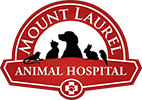We are writing to provide up-to-date and accurate information about the Canine Influenza Virus and recent outbreaks. We hope that by making people aware, this will help prevent the spread of the virus.
Cases of Canine Influenza Virus (the H3N2 strain) were reported in Chicago, but recent outbreaks have been reported in Florida, Georgia, and North Carolina.
Canine Influenza Virus is a very contagious airborne disease that is spread among dogs. Below are some important facts about canine influenza:
• The virus is spread from infected dogs and can travel over 20 feet in the air or through contaminated items such as food/water bowls, crates, etc.
• The virus lives up to 48 hours on hard surfaces
• Over 80% of dogs that are exposed to canine influenza will contract the disease
• The other 20% of dogs that do not develop clinical signs may be sub-clinical carriers, such that they can spread the virus without actually showing signs of illness
• Dogs will shed the virus for up to 28 days
• Fortunately, most dogs will show full recovery if treated appropriately
• Isolating sick animals for 30 days, practicing good sanitation, washing hands frequently when handling different dogs, and limiting spread through fomites, such as food bowls, are helpful at limiting the spread of canine influenza.
• The best protection against canine influenza is vaccination.
• A single vaccination against both the H3N2 and H3N8 strains of the virus is available.
• Treatment of Canine Influenza Virus requires veterinary assistance. If you believe your dog may have Canine Influenza Virus, please contact your veterinarian immediately. Untreated, the illness may progress to pneumonia or other more serious problems. H3N2 can lead to severe secondary pneumonia which can cause extremely sick dogs with potential fatalities.
• Treatment of canine influenza requires veterinary care. If left untreated, the illness may progress to pneumonia. NOTE: If you are concerned that your dog is showing signs of canine influenza, please call ahead so that the hospital can plan for your arrival and follow specific protocols to minimize the spread to other patients.
Symptoms
• Coughing and nasal (nose) discharge
• Lethargy
• Decreased appetite
• Fever, trembling, discomfort
Author: Dr. Christopher Torre | Veterinarian & Co-Owner

